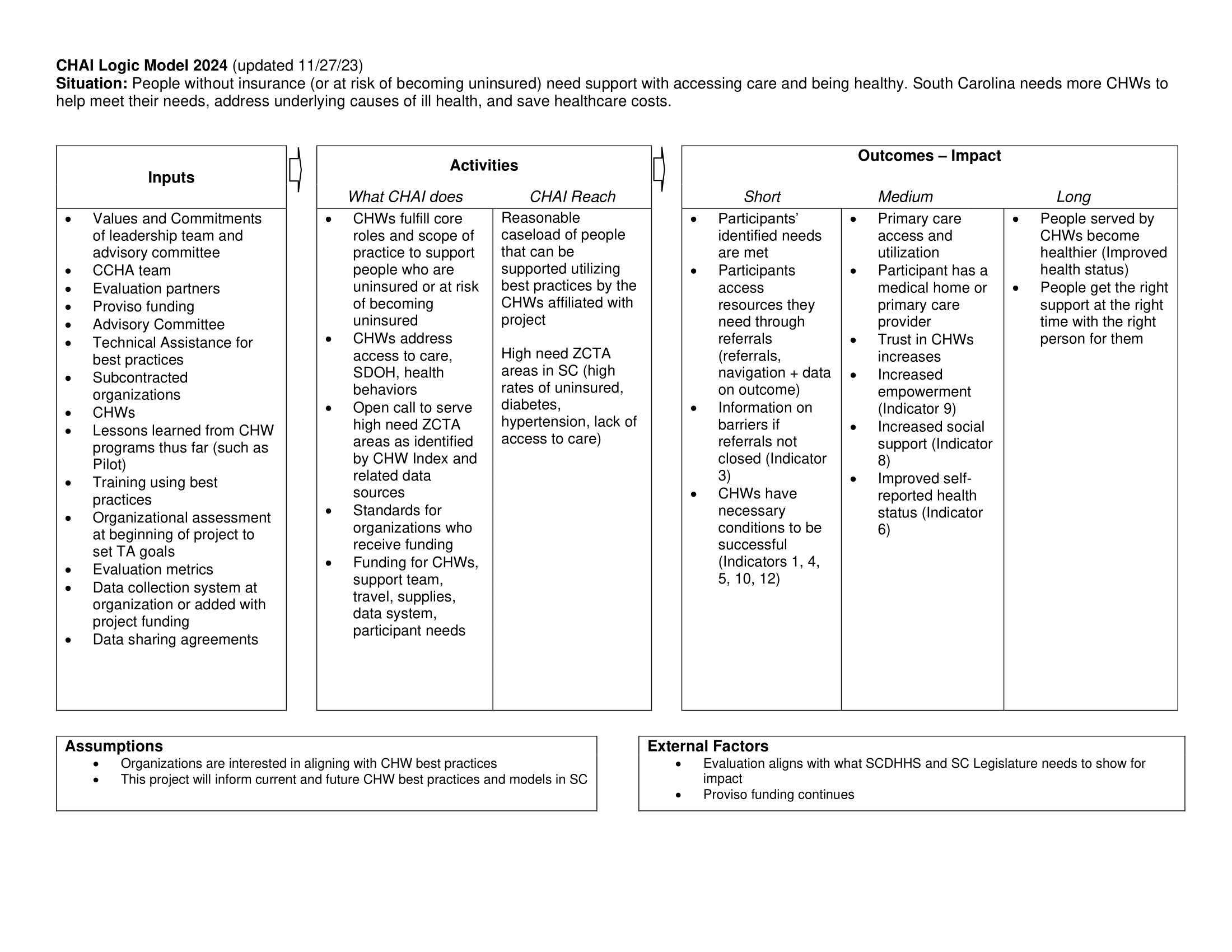Community Health Alignment Initiative (CHAI)
HAZ CLIC AQUÍ PARA ESPAÑOLWhy Does South Carolina Need the Community Health Alignment Initiative
(CHAI)?
According to the American Community Survey (ACS) approximately 521,147 South Carolinians, or 10.04% of the total population, were uninsured in 2021. This number is likely currently higher since the federal government has ordered states to restart reviewing the eligibility status of Medicaid members and removing those who do not qualify beginning April 1, 2023. South Carolina needs community health workers to support community members in navigating access to insurance and address other social determinants of health (SDOH) that impact their quality of life. CHAI is designed to support these community members.
CHAI is Designed to Meet the Needs of Communities Across the Palmetto State
The CHAI program was established by the South Carolina General Assembly Proviso 33.20 titled the Medicaid Accountability and Quality Improvement initiative 2023-2024 Appropriations Act in 2023 which authorized SCDHHS to contract with the Center for Community Health Alignment (CCHA) in a collaborative effort to expand the community health worker program with the goal of improving health outcomes for individuals without access to affordable health insurance by facilitating resource connections and access to safety net providers. Click on the questions below to learn more.
Organizations Funded by CHAI
The recipient organizations include Affinity Health Center, AccessHealth Horry, AccessHealth Spartanburg, AnMed, Browns Ferry Community Outreach (BFCO), The Courage Center, Greenville Free Medical Clinic, HopeHealth, McLeod Health, the Medical University of South Carolina (MUSC), PASOs, Prisma Health, Regenesis Health Care, Roper St. Francis Healthcare, Rural Health Services, and Tandem Health.
CHAI Mailing List
To sign up for the CHAI mailing list, please complete this form.
Why was CHAI Established?
The CHAI program was established by the South Carolina General Assembly Proviso 33.20 titled the Medicaid Accountability and Quality Improvement initiative 2023-2024 Appropriations Act in 2023 which authorized SCDHHS to contract with the Center for Community Health Alignment (CCHA) in a collaborative effort to expand the Community Health Worker (CHW) workforce with the goal of improving health outcomes for individuals without access to affordable health insurance by facilitating resource connections and access to safety net providers.
A basis for understanding why we will be focusing on increasing the CHW workforce to support people who are uninsured can be seen in the County Health Rankings Population Health Model below. We know that clinical care is important, but it only impacts about 20% of our health. However, health behaviors, social and economic factors and the physical environment where someone lives impacts the other 80%. These are the areas where CHWs, with support from their larger teams, organizations and partners, can assist
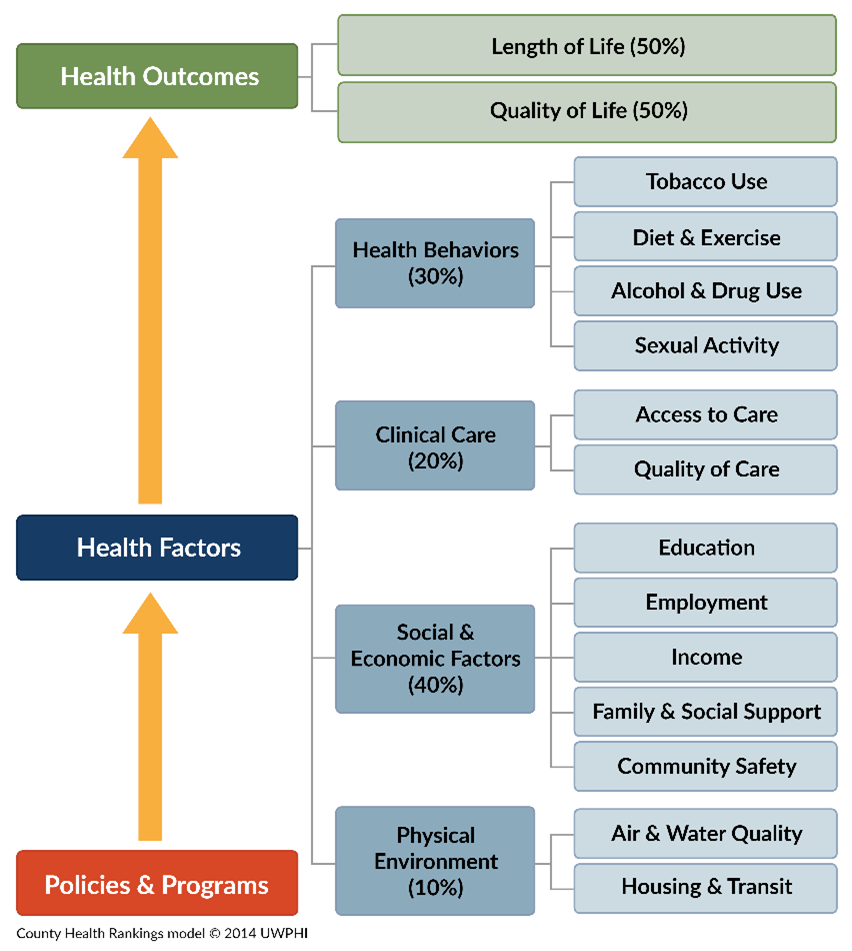
What are the target populations for the CHAI program?
Individuals living in high priority ZCTAs (Zip Code Tabulation Area) who are uninsured, or at high risk of becoming uninsured, with priority given to communities with higher rates of chronic disease or chronic disease risk factors and lower access to primary care. To determine the higher needs ZCTAs, we utilized diabetes and high blood pressure data from the Centers for Disease Control and Prevention’s Interactive Atlas of Heart Disease and Stroke (2019). The uninsured rate was derived from the 2021 American Community Survey data. The standardized provider rate information is drawn from the SC Community Health Worker Prioritization Index (2021). Applications must indicate how CHWs will serve individuals living in these areas. CHWs may serve individuals from other areas as well, but the application must indicate how these ZCTAs will be prioritized.
The 40 highest-need ZCTAs include:
|
Aiken |
29801 |
|
Allendale |
29810 |
|
Anderson |
29624 |
|
Barnwell |
29817 |
|
Berkeley |
29436 |
|
Charleston |
29406 |
|
Charleston |
29405 |
|
Chester |
29706 |
|
Clarendon |
29148 |
|
Clarendon |
29102 |
|
Darlington |
29550 |
|
Darlington |
29532 |
|
Dillon |
29536 |
|
Florence |
29501 |
|
Florence |
29505 |
|
Florence |
29506 |
|
Georgetown |
29440 |
|
Greenville |
29611 |
|
Greenville |
29605 |
|
Horry |
29576 |
|
Lancaster |
29720 |
|
Lee |
29080 |
|
Marlboro |
29512 |
|
Marlboro |
29525 |
|
Orangeburg |
29048 |
|
Orangeburg |
29163 |
|
Orangeburg |
29115 |
|
Orangeburg |
29118 |
|
Richland |
29203 |
|
Richland |
29204 |
|
Richland |
29201 |
|
Spartanburg |
29302 |
|
Spartanburg |
29301 |
|
Spartanburg |
29306 |
|
Sumter |
29150 |
|
Williamsburg |
29590 |
|
Williamsburg |
29554 |
|
Williamsburg |
29556 |
|
Williamsburg |
29056 |
|
York |
29730 |
What is the Center for Community Health Alignment’s role?
CCHA shall maintain responsibility for the collaborative effort to expand the Community Health Worker Program to meet the goal of improving health outcomes for individuals who do not have access to adequate health insurance by facilitating individuals’ connections to safety net providers and community resources.
Specific Duties of CCHA
- Maintain responsibility for the Community Health Alignment Initiative (CHAI).
- Determine how to expand the CHW Program to clinical and community-based settings in a way that remains consistent with CHW philosophy and best practices defined by field expertise.
- Provide SCDHHS with a timeline for implementation of the CHAI.
- Ensure that CHWs are properly trained in the tasks expected of them.
- Provide guidance and expectations to funded subrecipients on how to maintain CHWs’ ties to the community.
- Develop a process for and provide subcontracts of funding to clinical and community-based organizations for hiring and support qualified community health workers to achieve the CHAI goals.
- Ensure that each site focuses on one/or more health condition and the social determinants of health factors that they determine to be most relevant to the needs of the individuals that are uninsured or underinsured that they serve.
What is the CHAI logic model?
How does CCHA have to account for the funds spent?
CCHA will submit quarterly reports and one final summary report to the SC Department of Health and Human Services. Data collected from funded organizations will be utilized to complete these reports and are essential:
- Details on the CHAI structure, status, and workplan;
- Project successes on hiring and incorporating CHWs to serve identified communities;
- Barriers encountered throughout the project;
- Narratives on how the Center for Community Health Alignment’s goals were met and the impact of the CHAI on the CHW workforce, individual South Carolina residents, and the hospitals affiliated with specific CHAI programs;
- Summarization of metrics, as applicable, including health improvement indicators and the number of individuals reached;
- Future directions and sustainability planning; and
- A listing of CCHA partners as of each reporting quarter.
What are the duties of the CHWs that will be funded through CHAI?
To address access to care, appropriate healthcare utilization, social determinants of health, health education gaps, and other needed services so that individuals have more tools and support to be healthy. CHW roles include:
- Facilitating cultural mediation among individuals, communities, and health/social service systems
- Providing culturally appropriate health education and information
- Care coordination, case management and system navigation of healthcare and social service systems
- Providing coaching and social support
- Advocating for individuals and communities
- Building individual and community capacity
- Providing direct service
- Implementing individual and community assessments
- Conducting outreach
- Participating in evaluation and research
CHWs will need to do outreach and develop community partnerships with organizations serving the target communities to engage individuals without insurance, or at risk of becoming uninsured. At intake, the CHWs will conduct a screening of healthcare and social service needs, level of need, and individual’s strengths and challenges. The CHW will engage the individual and any other team members or partners to determine a plan for supporting the individual by utilizing any of the CHW roles above. CHWs will also engage in cultural mediation with providers, advocacy, and capacity building as applicable and needed to best serve the individuals and communities of focus.
The CHAI Advisory Committee
Upon notification of funding from SCDHHS, CCHA coalesced an advisory committee of CHWs, AccessHealth initiatives, hospital networks, and other stakeholders to provide input and direction on the development of CHAI for the Palmetto State. This advisory committee consisted of several subcommittees that focus on data and evaluation, funding priorities, and CHW program fidelity. Following the guidance provided by these individuals, CCHA is implementing CHAI across South Carolina.
The CHAI Advisory Committee consisted of the following individuals. Click on their photos to learn more about their work in the Palmetto State and beyond.
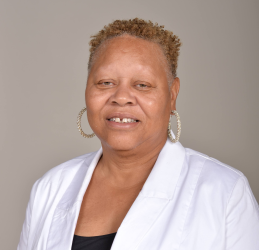
Wilma Moore, CHW
Community Health Worker
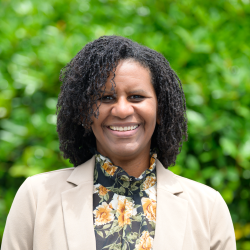
Dara Brown, CHW
Senior Community Health Coordinator at Brookland-Lakeview Empowerment Center

Jodi Rodgers, CHW
Community Health Worker at Access Kershaw

Victoria Adewumi, CHW
Community Health Worker at the City of Manchester, NH
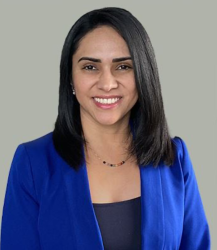
Mayra Lubov, CHW
PASOs Deputy Director
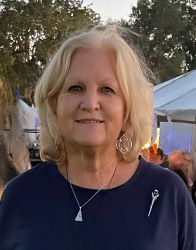
Terri Jowers, CHW
SCCHWA Interim Executive Director
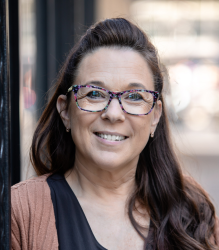
Pennie Jewell, CHW
Community Health Worker at CHW Center for Research and Evaluation

Marek Calhoun, CHW
Director of Social and Community Services at CareSouth Carolina
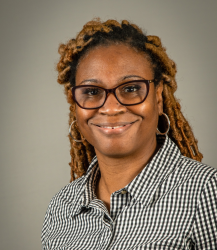
Reeshemah McKelvey, CHW
Director of Access Health Tri-County Network
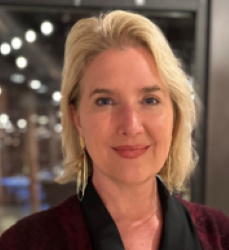
Carey Rothschild, CHW
System Director of Community Health Policy and Strategy at Spartanburg Regional Healthcare System

Sonya Del Rio, CHW
Director of Enabling Services at Tandem Health
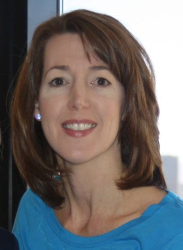
Karen Nichols
Executive Director for the Upper Midlands Rural Health Network (UMRHN)

Zack King
Community Health Development Consultant
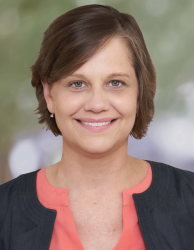
Holly Pope
Research Associate at C.A.R.E.
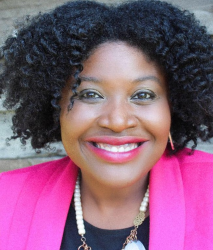
Angel Bourdon
Director of Community Health & Innovation with the SC Hospital Association (SCHA)

Mary Jones, PhD, MPH
Director of Workforce Development at the Arnold School of Public Health
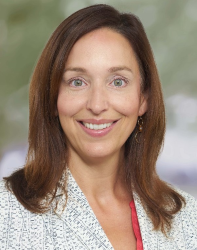
Pam Gilliam
Director at C.A.R.E.
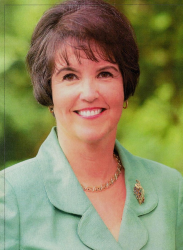
Suzie Foley
Executive Director at Greenville Free Medical Clinic
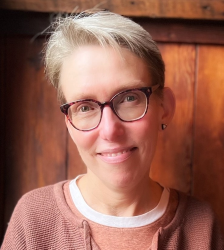
Noelle Wiggins
Co-Principal Investigator at the CHW Center for Research and Evaluation
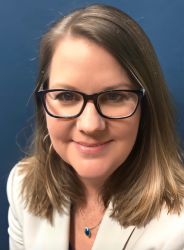
Cyndi New
Self Regional's Director of Community Health & Health Equity
Acronym Glossary
- CCHA: Center for Community Health Alignment
- CHAI: Community Health Alignment Initiative
- CHW(s): Community health worker(s)
- SCCHWA: South Carolina Community Health Worker Association
- SCDDHS: South Carolina Department of Health and Human Services
CHAI Frequently Asked Questions
Why were only 40 ZCTAs used to determine eligibility for the program?
We are committed to a bold and equitable approach to expanding the CHW workforce in the Palmetto State by using our limited resources wisely. Our decision to fund the identified ZCTAs (Zip Code Tabulation Area) was data driven. There is a need to serve people in all of South Carolina’s 424 ZCTAs. However, we prioritized funding based on evidence-based inequities and are starting with the 40 highest need ZCTAs. Prioritizing these ZCTAs provides an opportunity to build on what we do in future years of this program and to garner additional resources to support more individuals in these identified communities in the years to come. This is only the beginning.
In some communities, there are incredible income and health disparities. This means that CHAI may focus on communities that appear to be high-income, but also are home to low-income community members. We don’t intend to leave these people behind. To begin closing these gaps, we will take a closer look at health disparities in our state and embrace a more equitable approach to serving those that need the most assistance.
This program focuses on individuals living in high priority ZCTAs who are uninsured, or at high risk of becoming uninsured, with priority given to communities with higher rates of chronic disease or chronic disease risk factors and lower access to primary care. To determine the higher needs ZCTAs, we utilized diabetes and high blood pressure data from the Centers for Disease Control and Prevention’s Interactive Atlas of Heart Disease and Stroke (2019). The uninsured rate was derived from the 2021 American Community Survey data. The standardized provider rate information is drawn from the SC Community Health Worker Prioritization Index (2021). Applications must indicate how CHWs will serve individuals living in these areas. CHWs may serve individuals from other areas as well, but the application must indicate how these ZCTAs will be prioritized.
Contact Us
For additional information about the Community Health Alignment Initiative (CHAI) please send an email to chai@mailbox.sc.edu .
Carey Rothschild
Carey Justice Rothschild is the System Director of Community Health Policy and Strategy for Spartanburg Regional Healthcare System. A certified CHW herself, Carey has experience developing and managing programs to identify and address social needs and barriers to health. She belives that CHWs are an essential component in aproving health for individuals and of our larger communities.
Mary Jones
Dr. Mary Jones serves as the Director of Workforce Development and Adjunct Faculty at the University of South Carolina’s Arnold School of Public Health. She has worked in the field of Public Health in various sectors (state, non-profit, healthcare) for more than 15 years. Her research and public health experiences include chronic disease prevention, community engagement and organizing, health equity, collation building and sustainability, workforce education and training related to the translation of research into public health and health care settings, and program implementation/management/evaluation.
Dr. Jones is a United States Air Force Veteran and serves her community in multiple capacities. Dr. Jones serves as: an at-large board member for Wholespire (optimizing health and wellness in all communities); a member of the Advisory Board for the SC Breast and Cervical Cancer and Early Detection; member of SC DHEC’s Workforce Development Committee; member of the Richland County Alumnae Chapter of Delta Sigma Theta Sorority, Inc. (public service sorority); member of the Health and Wellness Ministry at First Northeast Baptist Church; member of the school improvement council in the Richland 2 school district
Noelle Wiggins (she/her)
Currently the Co-Principal Investigator of the CHW Center for Research and Evaluation (formerly, the CHW Common Indicators Project), Noelle has over 35 years’ experience working on teams that use popular/people’s education, the Community Health Worker (CHW) model, and participatory research and evaluation to advance health and educational equity. Noelle served as Assoc. Director of the landmark Natl. Community Health Advisor Study and co-wrote the study chapter that identified the core roles and competencies of CHWs. Noelle has a BA from Yale University, an MS from the Harvard School of Public Health, and a doctorate in Educational Leadership from Portland State University.
Dara Brown
Dara Brown, MPH is the Senior Community Health Coordinator at Brookland-Lakeview Empowerment Center. She has over 25 years experience in public health. Ms. Brown has experience as a community health worker working at the individual, group, and systems levels.
Holly Pope
As a research associate with the Center for Applied Research and Evaluation (CARE) at the Arnold School of Public Health, Holly’s research interests include the evaluation of how communities access services and information and community partners contribute to solutions through mixed methods, including in-depth interviews and focus groups. Holly specializes in using qualitative research methods in the context of quality improvement projects to inform stakeholders to address issues of racial equity.
Mayra Lubov
Mayra Lubov is a community health worker and the PASOs Deputy Director. She has more than 15 years of experience in serving the community through various roles in both the U.S. and South America. She truly believes that education is a powerful and vital tool for our communities to thrive.
Wilma Moore
I’m Wilma Jackson Moore from Spartanburg, SC. I work as a Community Engagement Coordinator for the United Way of the Piedmont, and am fortunate to be located in my neighborhood, the Highland Community. I am 63 years old and I have two wonderful children, Briana and Kiyounnie, who is now living with the Lord, and a beautiful grandson, Kace McCreary Means who just turned two. I have been working in community service since 2008 and I am a Certified Community Health Worker, graduating the inaugural class in 2020.
Terri Jowers
Terri Jowers, CCHW, is a Barnwell County native and founding member of the South Carolina Community Health Worker Association (SCCHWA). Currently, she serves as Interim Executive Director of SCCHWA.
Jodi Rodgers
I am Jodi Rodgers, a certified CHW and Access Kershaw Supervisor. I have worked with the Community Medical Clinic of Kershaw County and Access Kershaw since 2016. I live in Cassatt SC, but originally from Beckley WV. I graduated from Marshall University in Huntington WV in 2000 with a BA in Counseling. I am a sports mom to my 2 teenagers, so you will find me on the sidelines during my off time.
Cyndi New
Cyndi New, currently serving as Self Regional’s Director of Community Health & Health Equity, brings a wealth of experience from her dynamic 20-year career in healthcare. With a Bachelor’s in Nursing from Lander University and a Master’s in Business Administration from Anderson University, she has effectively blended her medical expertise with a strong business acumen. With certifications in Diversity, Equity, and Inclusion (DEI) and Results Based Accountability, New is dedicated to implementing comprehensive healthcare programs that prioritize health equity, social determinants of health, and community well-being, fostering healthier and more inclusive communities.
Karen Nichols
Karen Nichols, MBA, became the Executive Director for the Upper Midlands Rural Health Network (UMRHN) in June 2014. UMRHN is a 501(c)(3) organization founded in 2004 to enhance partnerships and collaboration among rural health and human service providers. In this role, Karen provides leadership in developing program, organizational, and financial plans and policies that fulfill the mission of the organization. The mission of UMRHN is to improve health in Chester, Fairfield, and Lancaster counties in South Carolina by increasing access to care, health promotion, and education.
Reeshemah Mckelvey
Ms. Reeshemah Mckelvey is the Director of Access Health Tri-County Network and has been employed with the agency for 10 years. Reeshemah oversees a team of Community Health Workers and Care Navigators who lead Roper St. Francis Health’s navigation of the chronically ill uninsured and underinsured patients’ population to include diabetes management and prevention efforts. MS. Mckelvey has over 17 years of experience in the Human Services and Population Health field. She has committed herself to advocating and serving marginalized populations in the Tri-County Area.
Victoria Adewumi
Victoria Adewumi, MA, CHW, MPH is a public health practitioner and Community Health Worker with over 10 years of experience in municipal, non-profit, K-12, higher education and faith-based organizational settings. Victoria’s work includes facilitating community empowerment and establishing health equity interventions for historically marginalized populations through coalition building, direct service, case management, policy and advocacy. Victoria is on the Leadership Team of the Community Health Worker Center for Research and Evaluation (CHW-CRE) where she supports the development of common process and outcome indicators to evaluate CHW programs globally. Victoria holds a BA/MA from the University of New Hampshire, and an MPH from Johns Hopkins University. Victoria is a current DrPH student at Johns Hopkins University, and was awarded both a MPH and DrPH Bloomberg Fellowship from the Bloomberg American Health Initiative.
Zack King
Zack King is a CHW ally and advocate that specializes in supporting organizational and collaborative efforts to advance the health and well-being of communities. Zack has a background in community health development, with a specific focus in advancing intersectional opportunities between healthcare organizations, public health, and community-based organizations. Throughout his career, Zack emphasized equity-oriented approaches that mobilize collective action, build authentic relationships, and grow the strengths of communities and organizations.
Penny Jewel
Pennie Jewell is a certified Community Health Worker with over 30 years of experience providing advocacy, care coordination, direct care, health education, social support, capacity building and case management. She is the founder of Athens Home Care Solutions (AHCS), an organization providing non-medical home care services in her community where she is currently developing strategies to integrate a Community Health Worker program. Pennie enjoys spending time with her children and grandchildren, playing pickleball and paddleboarding.
Sonya Del Rio
Sonya Del Rio is the Director of Enabling Services for Tandem Health in Sumter SC. Prior to her role at Tandem Health, she worked for the Department of Human and Health Services for 10 years as an Eligibility Specialist. She holds a B. A. in Human Services, an Associate‘s degree in Early Childhood Education and an Associate’s in Human Services. She is a Certified Community Health Worker, and a Certified Medical Assistant.
Angel Bourdon
Angel Bourdon is the Director of Community Health & Innovation with the SC Hospital Association (SCHA). In her role with SCHA, Angel leads community health and equity efforts through Healthy People, Healthy Carolinas (HPHC) and AccessHealth (AHSC) by supporting member hospitals, developing program strategy and providing technical assistance for The Duke Endowment-funded communities.
Previously, Angel worked with Prisma Health in Community Health and Information Technology. In those roles, she led the health system’s strategies for the Community Health Needs Assessment for 2016 and 2019, the launch and expansion of the school-based telehealth program and research and development of enterprise Business Intelligence and Population Health technology strategies.
Angel earned her Bachelor of Arts in Business Administration and Communication from Columbia College and Master of Health Administration from the Medical University of South Carolina. She is an avid volunteer and a believer of lifelong learning as a graduate of the United Way of the Midland’s Blueprint for Leadership program, SCHA’s Management Academy and a variety of other personal development programs. She also serves on several community boards and committees and received her Results-Based Accountability Certification from the Clear Impact Academy in 2021.
Marek Calhoun
Marek Calhoun resides of Darlington, SC and has lived in Darlington County since 2001. Marek currently serves as the Director of Social and Community Services for CareSouth Carolina’s Community Health Services Division. CareSouth Carolina is a Federally Qualified Health Center (FQHC) in the Pee Dee Region of South Carolina. Marek received his Associate’s of Arts degree in Management from Northeastern Technical College, a Bachelor’s of Arts degree in Psychology and Criminology from Coker University. He later received an Master’s of Arts degree in Community Mental Counseling from Webster University and a Master’s of Science degree in the Administration of Justice and Security from the University of Phoenix.
Marek is a member of the greatest fraternity in the world, THE Omega Psi Phi Fraternity, Inc. where he holds the office of Keeper of Records and Seal for the Chi Iota chapter in Florence, SC. Marek is a diehard Las Vegas Raiders fan. Marek enjoys cooking and spending time with his family especially his wife Eutashia and their new addition to the family, baby boy Darry. When ask what drive and motivates him, Marek says “I want to make a difference in the lives of people, that’s what drives me every day; knowing that I have touched and made a difference in the lives of those in the community we serve.”
Suzie Foley
Suzie Foley has been the Executive Director of the Greenville Free Medical Clinic since 1999. An experienced non-profit manager, grantwriter and fundraiser, she has over 35 years experience, including with several United Ways. She served on the National Association of Free Clinics Board of Directors (2008-2017) and the South Carolina Free Clinic Association (2006-2012 and 2019-present), currently serving as the Chair of the SCFCA. During her tenure at the Greenville Free Medical Clinic, the scope and quantity of services provided for Greenville County’s low-income uninsured population has increased dramatically, including 3 primary care satellite clinic sites, numerous sub-specialty clinics, a robust dental clinic, case management/navigation services, an extensive dispensing pharmacy, and clinical rotation sites for medical residents and students. She sees that CHW’s play a significant role in addressing the major obstacles that patients face in seeking healthcare services, gaining access to critical prevention and screening services and learning and addressing chronic disease issues.
Pam Gillam
Pamela Gillam is the Director of the Center for Applied Research and Evaluation (CARE) at USC’s Arnold School of Public Health. She provides expertise in mixed methods evaluation and research, quality improvement (QI) consultation, and strategic planning facilitation. She collaborates with state agencies, non-profit organizations, healthcare providers and other community partners to improve outcomes on various public health issues including maternal and child health, oral health, tobacco cessation, access to reproductive health services and cancer screening. For the past four years, she has been involved in the creation of a statewide strategy to better address social determinants of health.
Ms. Gillam is trained in Lean Six Sigma and the Institute for Healthcare Improvement’s Breakthrough Series Collaborative. She has a BA in Urban Studies from the College of Charleston and a MPA from the University of Charleston/USC.

